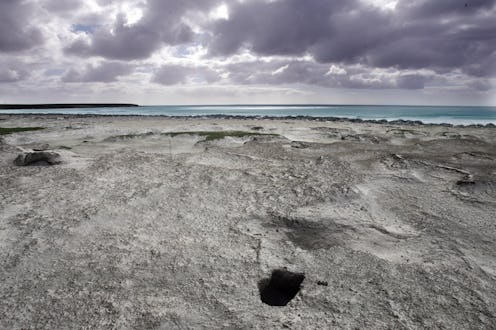News
What's At Stake In The Virgin Islands
While the Republican presidential primary may have unofficially wrapped last week when real estate mogul and reality TV star Donald Trump, the last remaining candidate in the race, secured the required number of delegates to snag the party's nomination, the Democratic nomination remains undecided — there are 930 delegates yet to be awarded. And although primaries held this coming Tuesday in New Jersey and California are expected to decide the race, voters in the Virgin Islands will have their chance to weigh in this Saturday, when the U.S. territory holds their Democratic caucus. Before the caucus votes are counted, it's important to know how the primary process works in the territories. Questions like how many delegates the territory will send to the Democratic National Convention and whether the Virgin Islands Democratic caucus is winner-take-all are easily answered.
Similar to the other voting events held during this year's Democratic primary, the Virgin Islands Democratic caucus is not winner-take-all; that delegate allocation system is used more often within the Republican nominating process. National Democratic Party rules stipulate states allocate delegates proportionally based on the results of a statewide primary or caucus, and the same rule applies to U.S. territories.
There are 12 delegates at stake in the Virgin Islands Democratic caucus. Seven of them will serve as pledged delegates allocated to candidates proportionately in accordance to caucus results, per national party rules, while the remaining five act as unpledged delegates. The Virgin Islands' unpledged delegates include the territory's Democratic Congress member and four Democratic National Committee members; the seven pledged delegates are elected during the caucus.
Interestingly, although the Virgin Islands does participate in both the Democratic and Republican nominating process the territory does not cast electoral votes in the general election. Fingers are crossed the territory's Democratic caucus goes off without a hitch, unlike the Virgin Islands Republican caucus, which proved quite a strange event this year. It began with hefty confusion over when exactly the territory's Republicans were caucusing and continued when neither Marco Rubio, Sen. Ted Cruz, Gov. John Kasich (all of whom have since dropped from the race), or Trump managed to win. The elected delegates at the March caucus were instead planning to attend the convention as uncommitted, but all six of them were disqualified and replaced with alternates a few weeks after the vote. The Virgin Islands will also send three seated officials to the Republican National Convention in July for a total of nine delegates.
Currently, no traditional presidential polls have been conducted in the Virgin Islands so it's difficult to say whether voters favor frontrunner Hillary Clinton or challenger Sen. Bernie Sanders. Political polling blog FiveThirtyEight is cautiously predicting Clinton will take four of the seven delegates at stake due to the territory's large percentage of black voters, a demographic the former Secretary of State has done well with in comparison to Sanders.
With only seven pledged delegates at stake, the Virgin Islands Democratic caucus will by no means decide the party's nominee. But it will be interesting to see if the territory's Democratic caucus is as exciting as its Republican one was.
